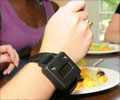Exercise physiologists seem to believe people’s estimates of the number of calories they burn are invariably very exaggerated.
Despite the displays on machines at gyms, with their precise-looking calorie counts, and despite the official-looking published charts of exercise and calories, it can be all but impossible to accurately estimate of the number of calories you burn.You can use your heart rate to gauge your effort, and from that you can plan routines that are as challenging as you want. But, researchers say, heart rate does not translate easily into calories.
One reason for the calorie-count skepticism is that two individuals of the same age, gender, height, weight and even the same level of fitness can burn a different amount of calories at the same level of exertion.
Claude Bouchard, an obesity and exercise researcher who directs the Pennington Biomedical Research Center in Baton Rouge, La., found that if, for example, the average number of calories burned with an exercise is 100, individuals will burn anywhere from 70 to 130 calories.
Part of that is genetic and part is familiarity with the exercise. The more familiar you are with an exercise, the fewer calories you use at the same level of effort, he found in a research study. Subjects rode stationary bicycles six days a week for 12 weeks. They ended up burning 10 percent fewer calories at a given level of effort after their training. The reason, he said, is that people perform an exercise more efficiently as they become more accustomed to it.
There also is a seldom mentioned complication in calculating calories burned during exercise: you should subtract off the number of calories you would be using if you did nothing. Almost no one does that, Dr. Bouchard said. But for moderate exercise, the type most people do, subtracting the resting metabolic rate can eliminate as much as 30 percent of the calories you think you used, he added.
Advertisement
Even if you wanted to get a rough estimate of the calories an average person your size might burn at the gym, you might not want to trust the displays on cardio machines, with the possible exception of treadmills, said William Haskell, an exercise physiologist at Stanford. And with treadmills, the calories are not accurate if you hang on the bars.
Advertisement
As for the calorie counts on machines like stationary bicycles and elliptical cross trainers and stair climbers, all bets are off, researchers said.
A major problem is that the machines get out of calibration. “They drift in speed and grade,” Dr. Haskell said. “If you go from one machine to another, it is obvious that at the same setting you are working much harder on one and much less on the next.”
Another is that the companies use their own formulas to calculate what an average person of a given size will burn at a given level of intensity. And those formulas may vary by company as well as by machine.
Jim Zahniser, a spokesman for Precor, cautions that the company’s machines are not supposed to give the exact number of calories for you. Instead, they are estimates of the calories an average person would burn at that work level. And, the company explains on its Web site, there is no easy way to know whether you are that average person.
Christa Dickey, a spokeswoman for the American College of Sports Medicine, cautions that figuring out calories “is always a bit of a challenge since you can really only assign estimates.”
Some say to just forget estimating calories and focus on why you exercise in the first place.
In fact for most people, calories burned should not matter, says Philip Clifford, a physiologist at the Medical College of Wisconsin in Milwaukee - “It all depends on what your goals are,” he said.
His aim is to get some exercise, preferably outdoors. Calorie counts are beside the point, he said, and he would not believe them anyway.
Source-Medindia
GPL/P










